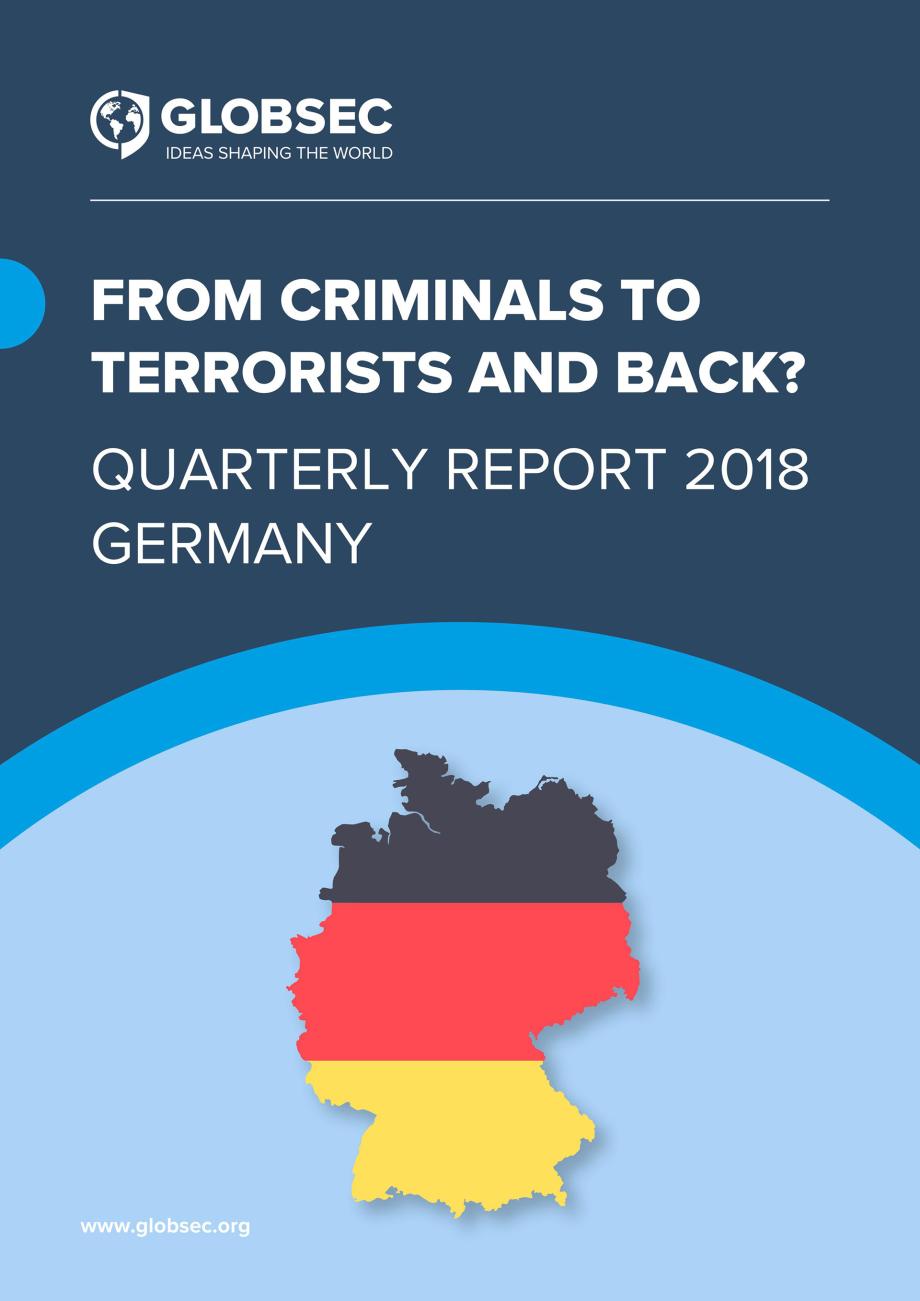From Criminals to Terrorists and Back? Quarterly Report 2018 Germany

GLOBSEC presents you with the latest quarterly report developed by its From Criminals to Terrorists and Back? project. This time the focus is on Germany.
Our qualitative analysis of 12 biographical profiles of Germans arrested for terrorism offences in 2015 supports the hypothesis of a crime-terror nexus. However, not all cases were related to jihadist groups in Syria and Iraq. On the contrary, our analysis also considers the case of a thwarted homegrown terrorist and an individual with links to a victim of the right-wing terrorist group the NSU (Nationalsozialistischer Untergrund).
The above case studies reflect the diversity of profiles analysed in this report. These include the 58-year-old ringleader of a broader network that was deeply involved in recruitment processes and the transfer of goods and vehicles to Syria, as well as a man with psychiatric problems who attempted a homemade bomb attack at a bicycle race. Also, there is the paradigm crime-terror nexus case of a young man sentenced for burglary offences who became more radical in prison and, upon release, went to Syria to join Islamic State.
All the profiles analysed in this report are male. And with the notable exception of one rather successful schoolboy—who was diagnosed with Asperger’s Syndrome, probably self-radicalised and who returned from Syria completely disillusioned—most come from a challenging socio-economic background in which violence and criminality were both known and oft-accepted patterns in the broader social context.
The 12 profiles analysed so far confirm the broader assessment that the radicalisation of individuals with criminal backgrounds is becoming a common pattern in one particular segment of the Salafi-jihadi scene. Moreover, such intensely intertwined crime-terror biographies appear to be prevalent among the lower ranks of the jihadi movement. In the case of Germany, most of the profiles are linked to the flow of foreign fighters towards Syria and Iraq and the support of jihadi groups in this region.